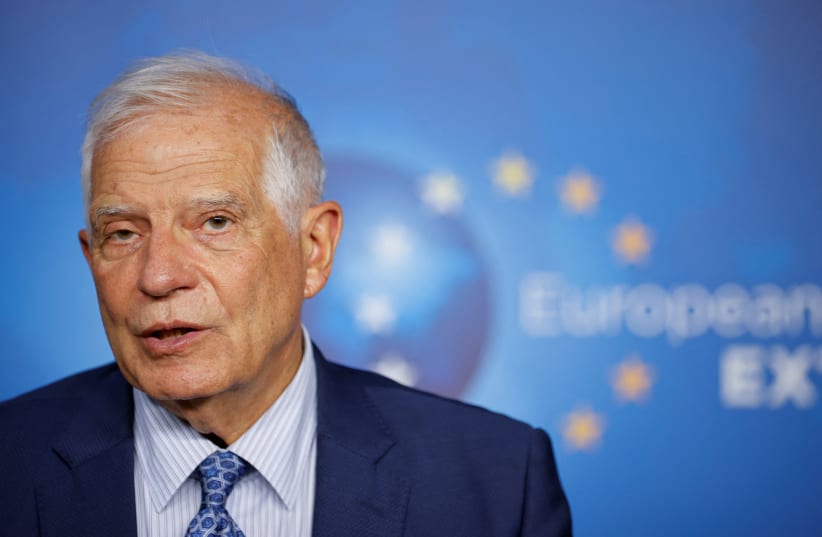European Union foreign policy chief Josep Borrell called on Israel to avoid unilateral actions against the Palestinians during his first phone call with newly installed Foreign Minister Eli Cohen.
Borrell “recalled known EU positions on the need to avoid unilateral actions and expressed strong concerns about the high number of victims,” his office stated.
The EU and Israel relationship
The two men discussed the strong relationship between the EU and Israel and the common threats they face, such as Iran.
Israel is one of the EU’s closest partners in the Middle East,” Borrell told Cohen according to his office, which added that they both face global challenges such as “Russia’s brutal war of aggression in Ukraine, including Russia’s military cooperation with Iran.” He also spoke warmly of Israel’s strengthening ties with its Arab neighbors.
Former Prime Minister Yair Lapid had upgraded the EU’s relationship with Israel, with the convening last year of the EU-Association Council that had been frozen for a decade.
Borrell referenced that meeting and said he wanted to build on that momentum. Cohen similarly pledged his commitment to improving ties. The two men agreed to meet, possibly at the Munich Security Conference in February.
But the conversation took place amid tension between Prime Minister Benjamin Netanyahu’s new government, particularly with respect to the issues of Jerusalem, West Bank settlement activity and the pending demolition of illegal Palestinian modular homes in the South Hebron Hills where some 1,000 people face possible eviction.
The European Union has actively worked for over a decade to support the Palestinian development of Area C of the West Bank, which is under IDF military and civilian control.
Palestinian building in Area C
The EU has funded illegal Palestinian modular building in that region, given that Israel has authorized only a minimal amount of construction and that meeting housing needs is a humanitarian right protected by international law. Israeli demolitions of illegal Palestinian structures has included those funded by the union.
The new government believes that Israeli sovereignty should be applied to Area C, where all the settlements are located. Its member has argued that the Palestinian Authority is using illegal building as a front to seize that territory for inclusion in the final borders of its future state with the help of the EU.
Israel this week froze all legal Palestinian development of Area C as part of the sanctions it leveled against the PA.
European Commissioner for Crisis Management Janez Lenarčič addressed the issue this week in response to a parliamentary question.
“The commission is keeping track of all demolitions and confiscations of donor-funded structures, including EU-funded assets and the related financial damage,” he said.
“On a number of occasions, Israel was requested to return, or compensate for, EU-funded assets that have been demolished, dismantled or confiscated by Israel,” Lenarčič said.
“At this stage a list of possible options to secure compensation from Israel for EU funding lost in demolitions has not been discussed,” “the commissioner said.
“It is for the council, acting by unanimity, to decide on the possible adoption of EU restrictive measures.”

